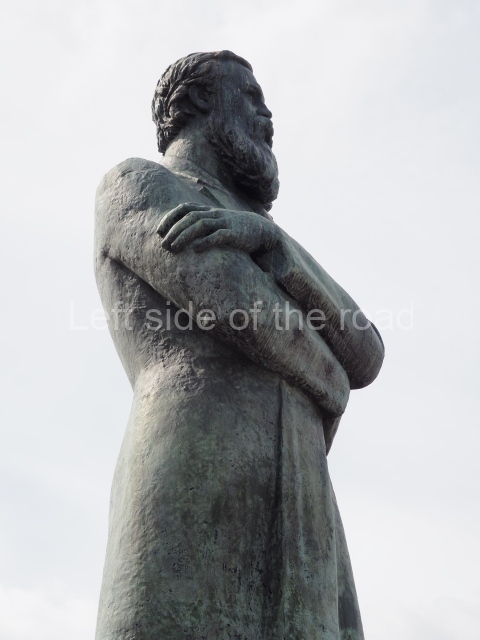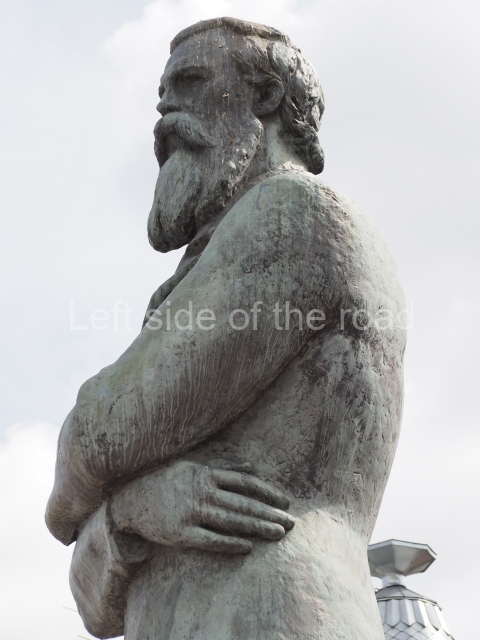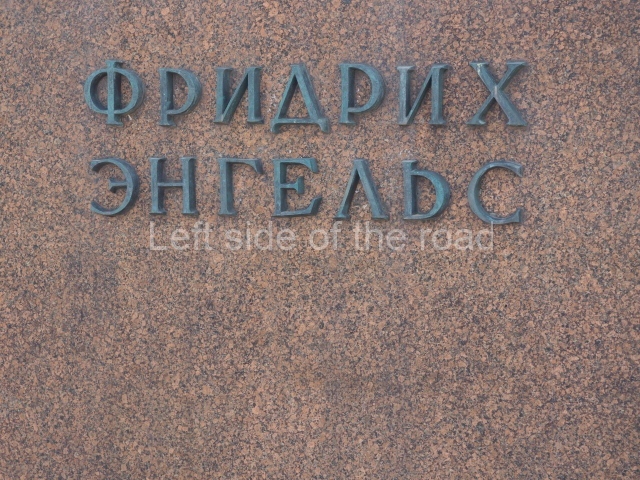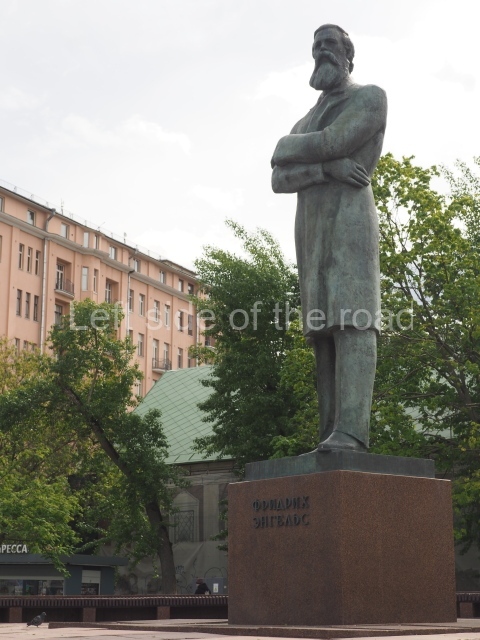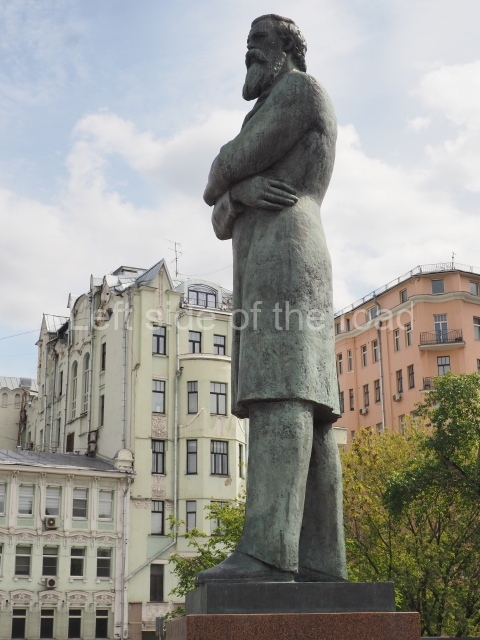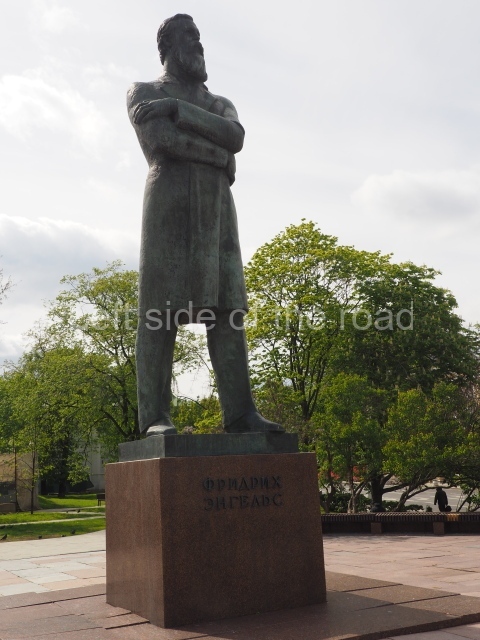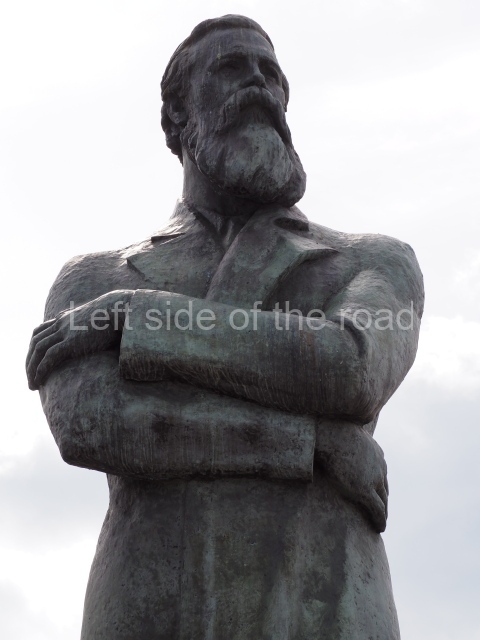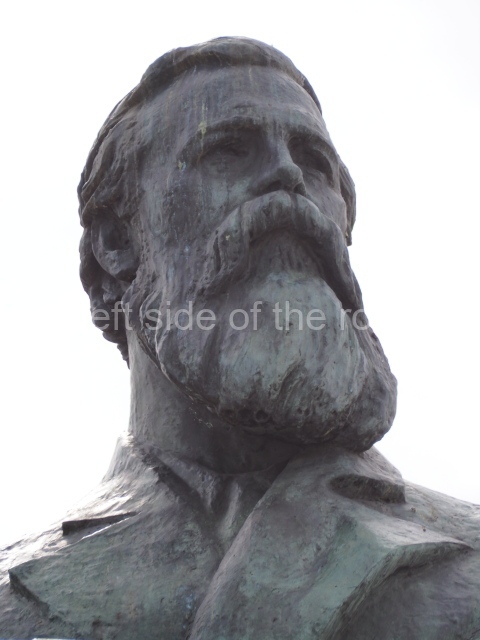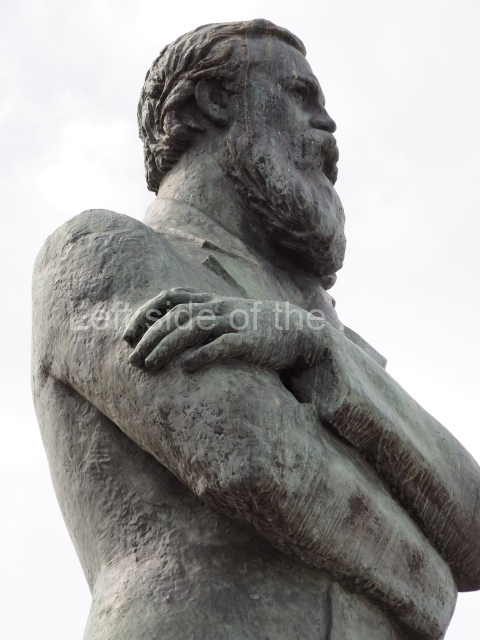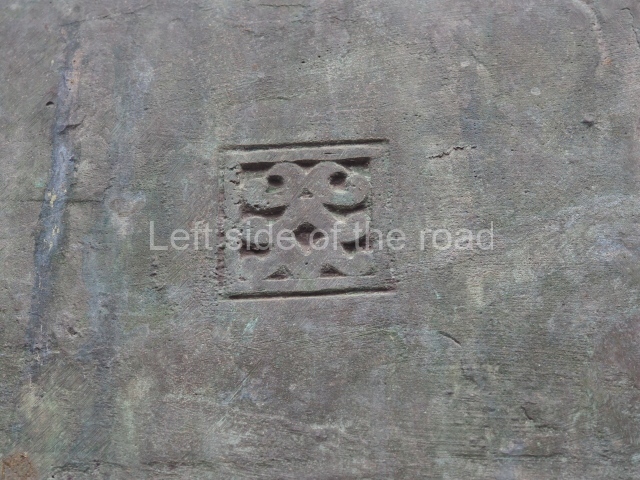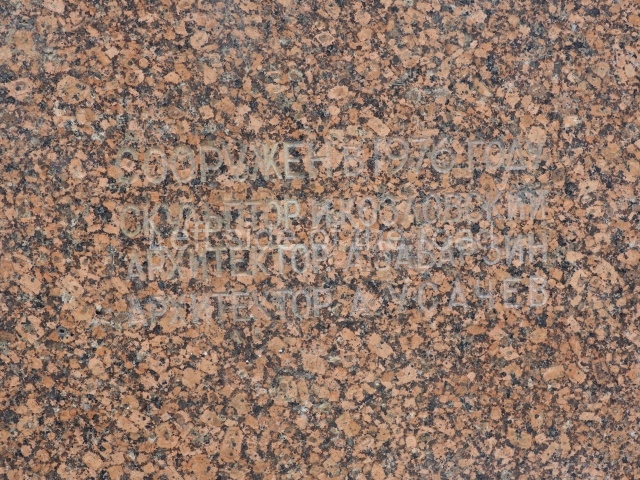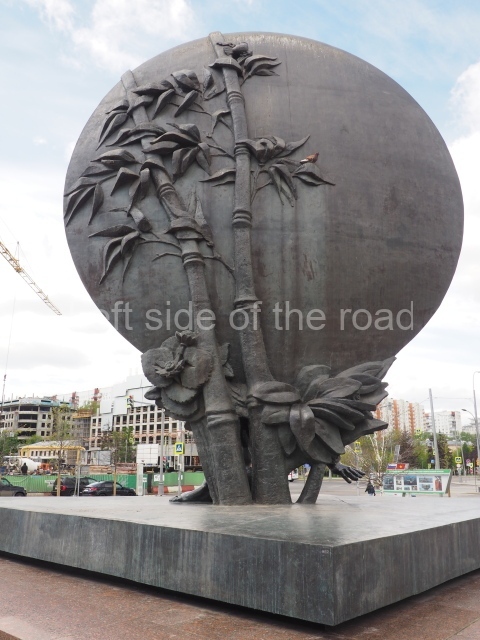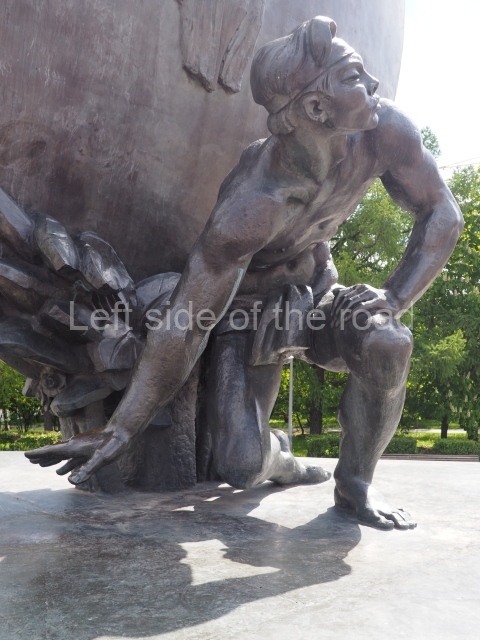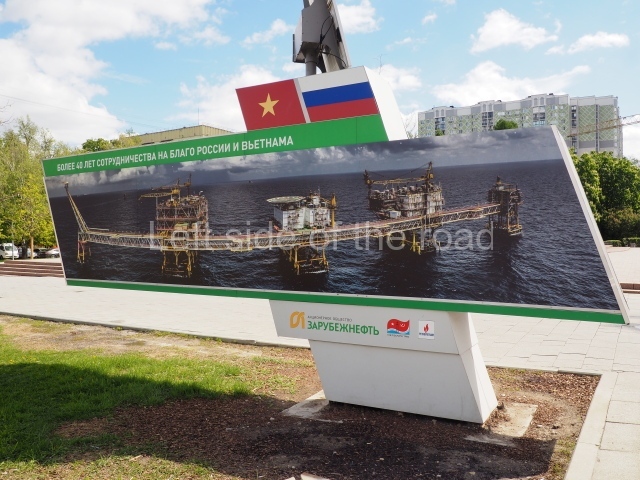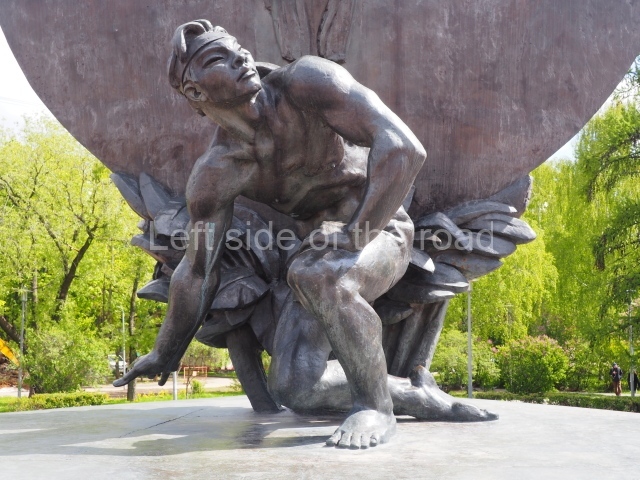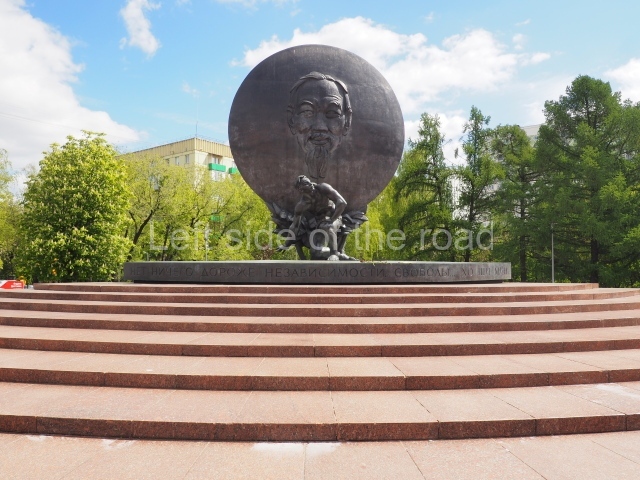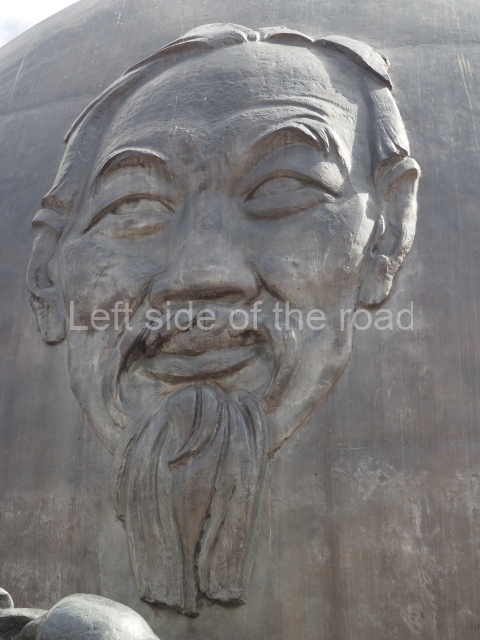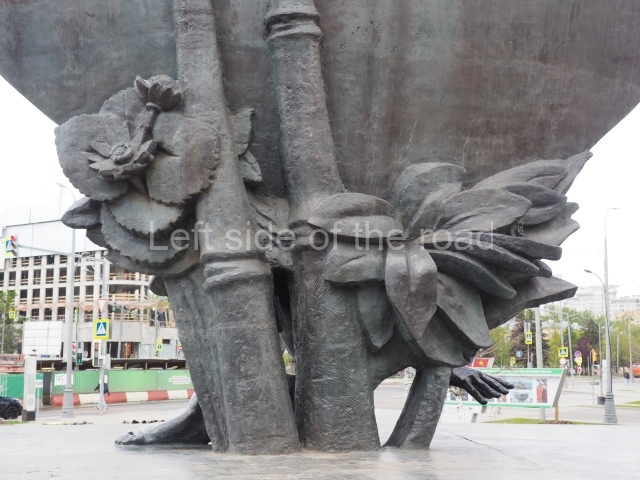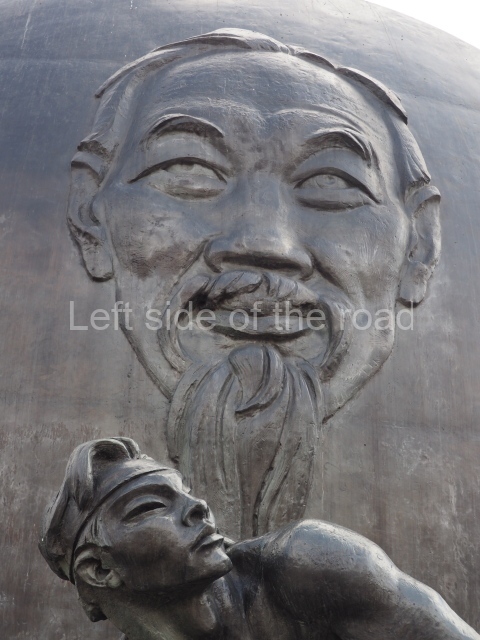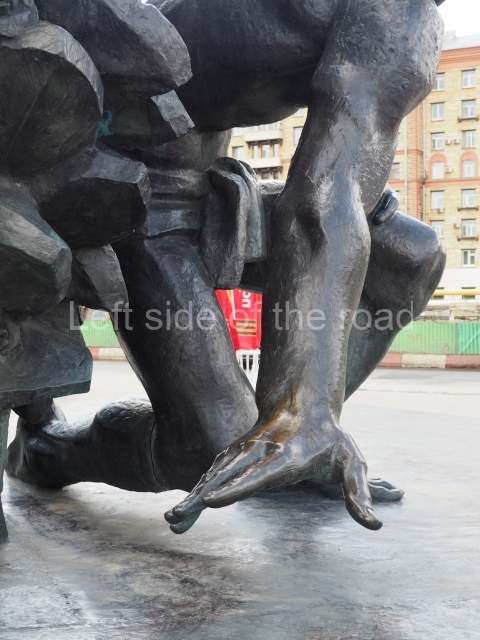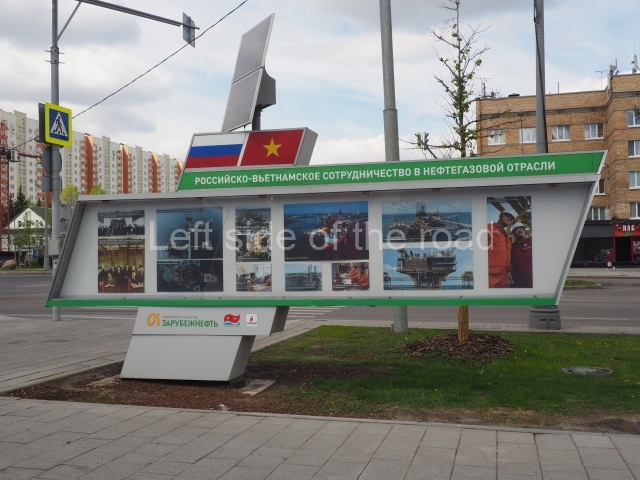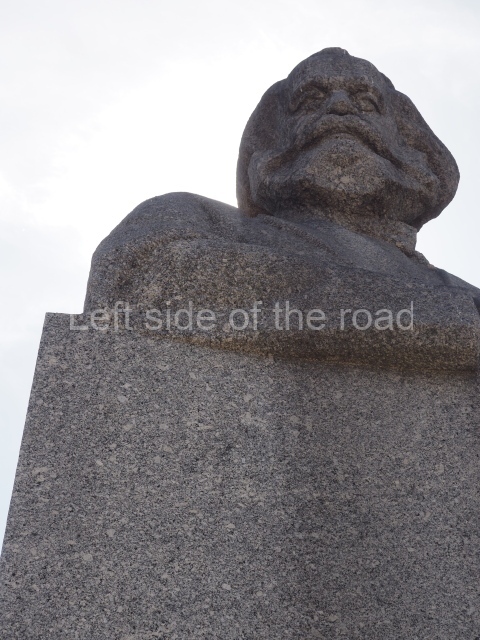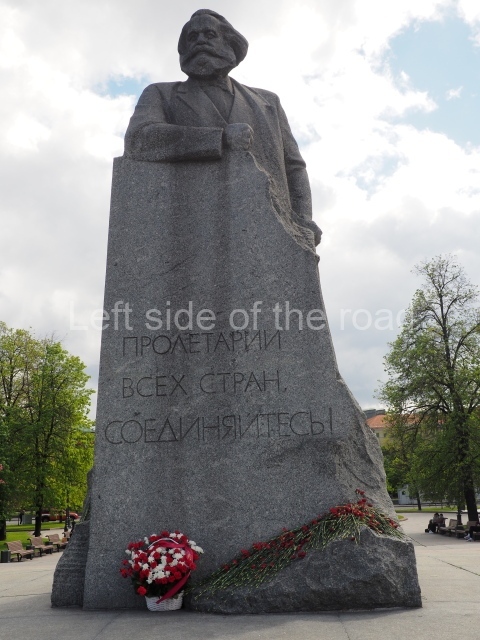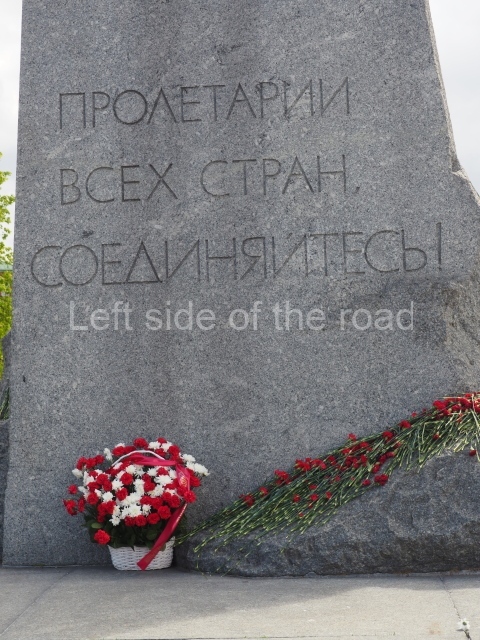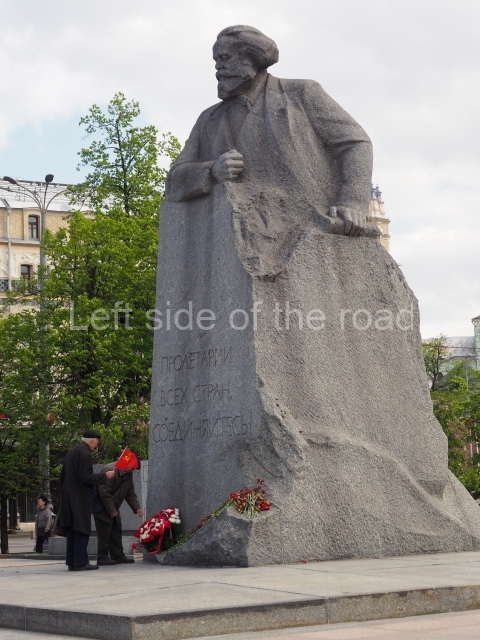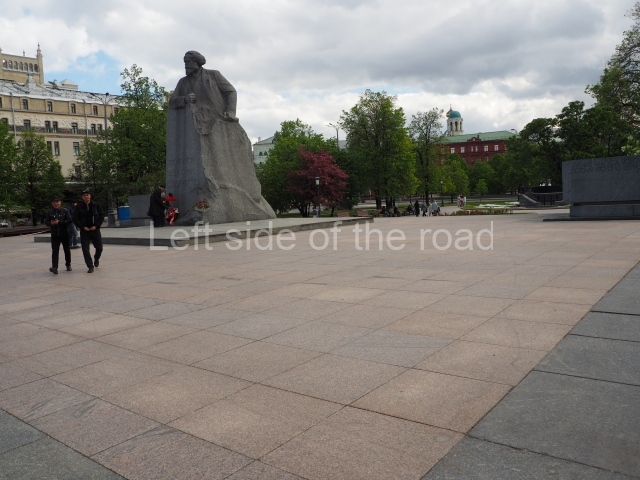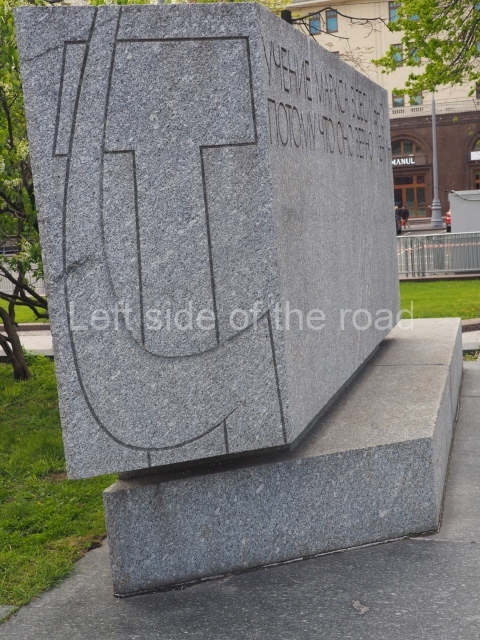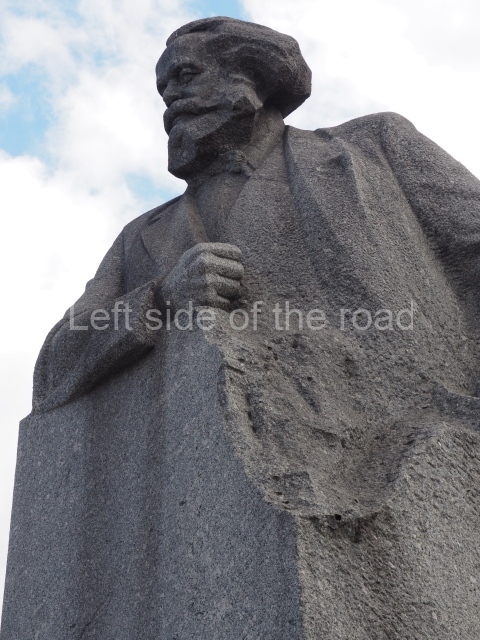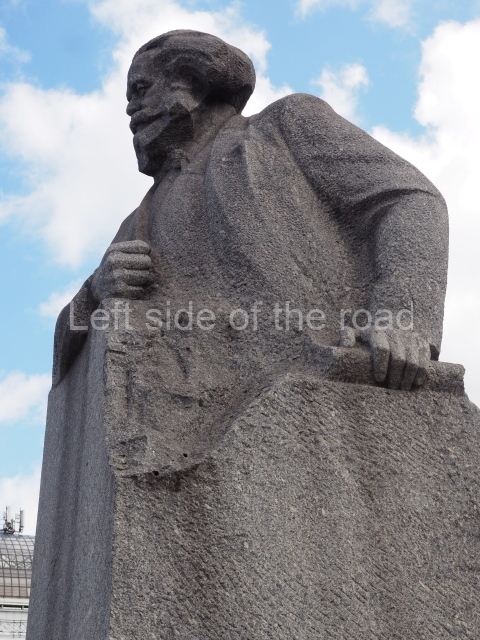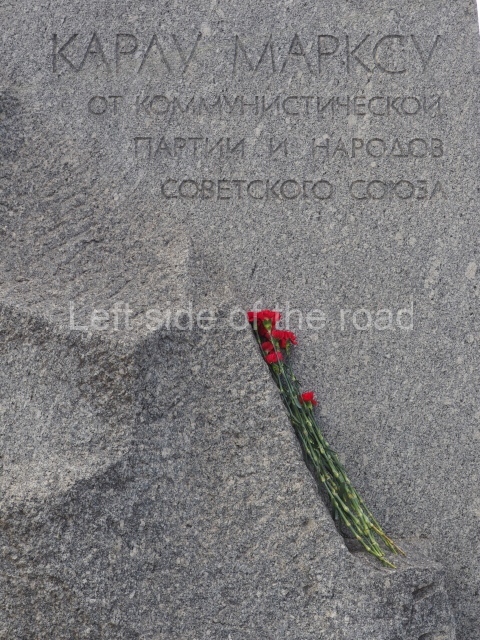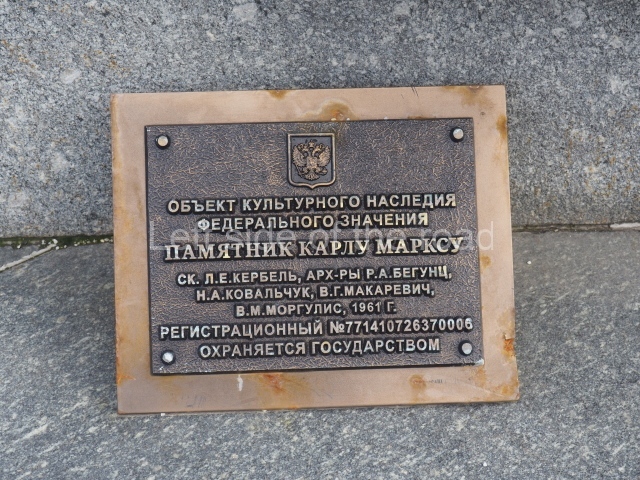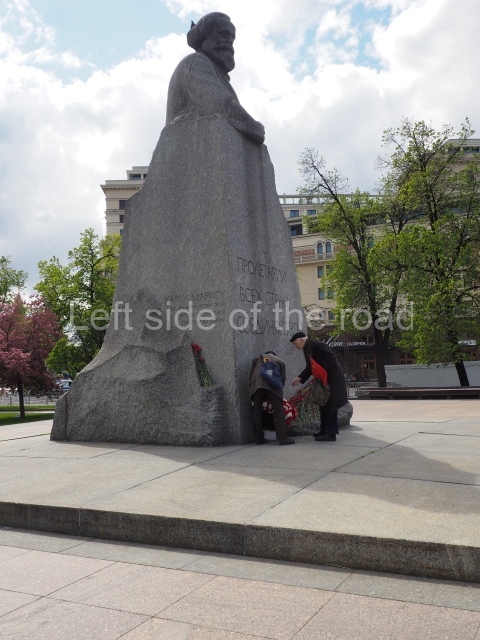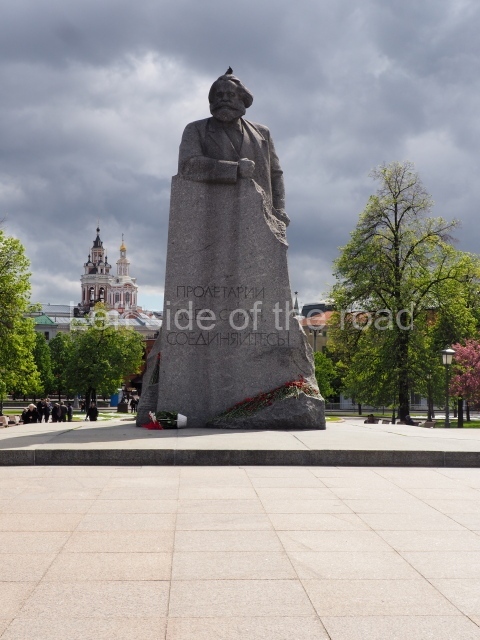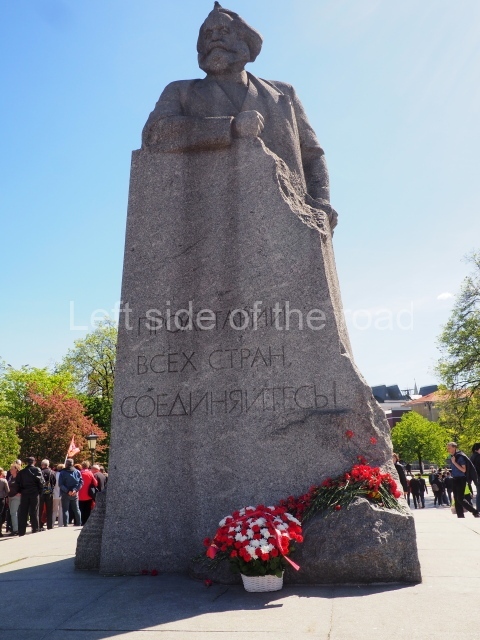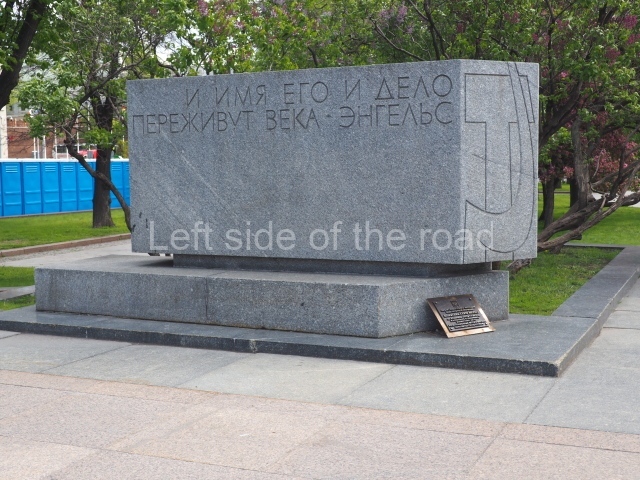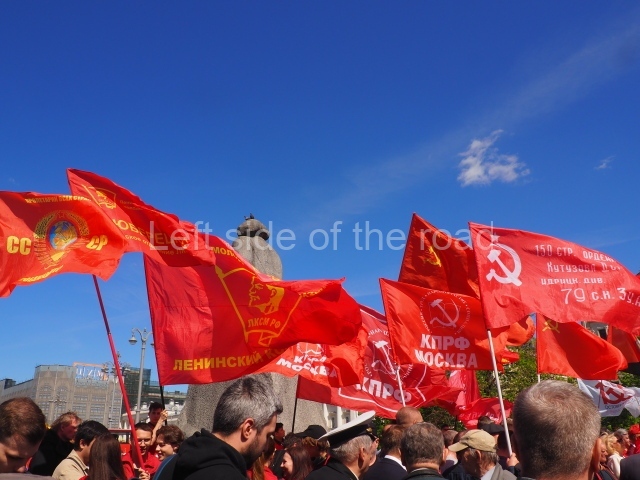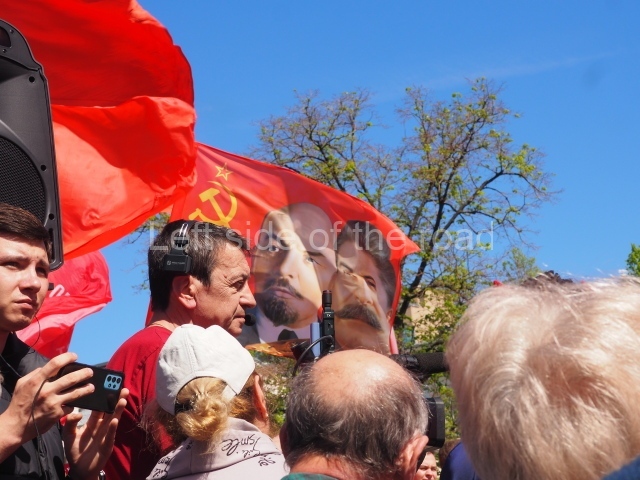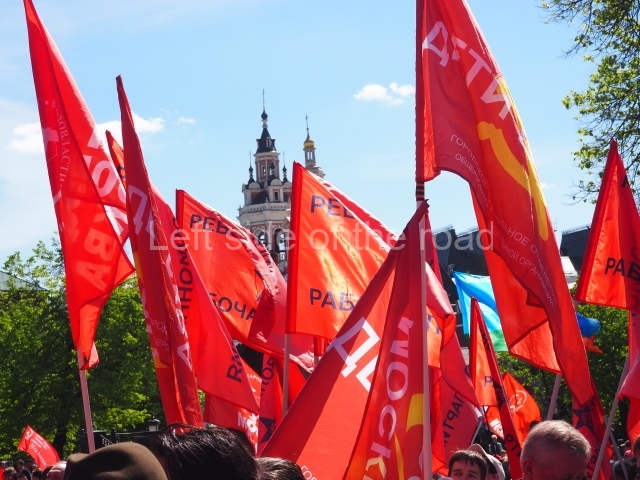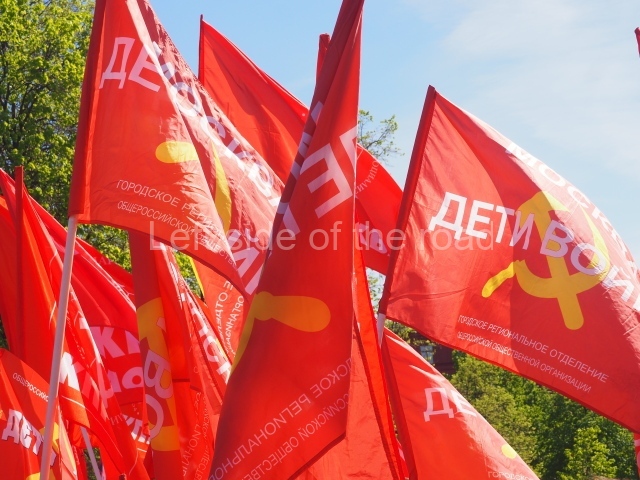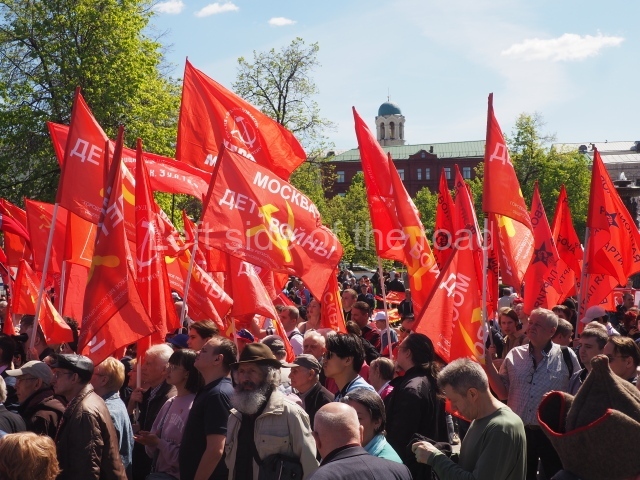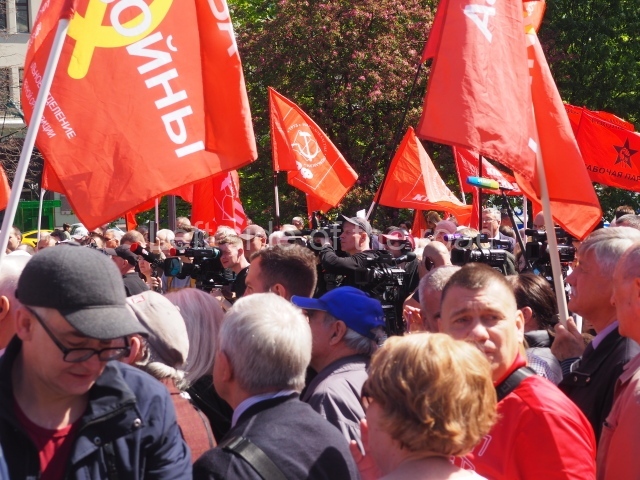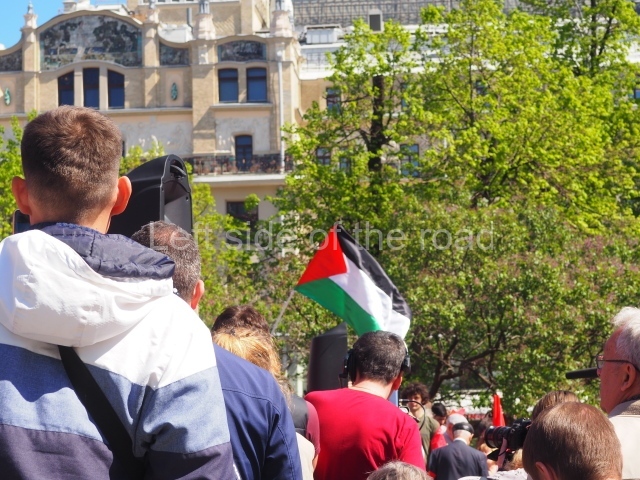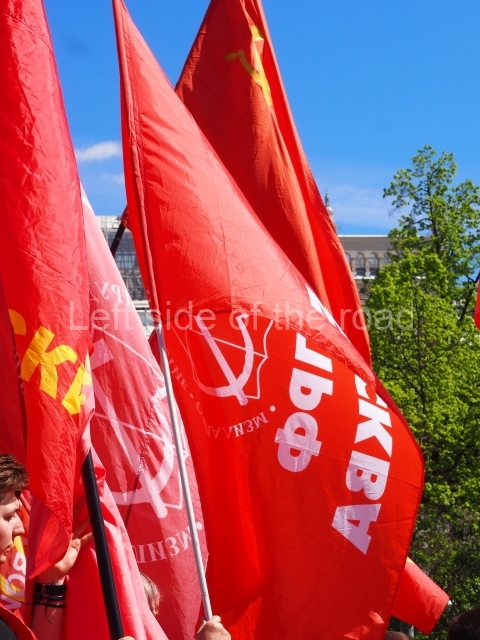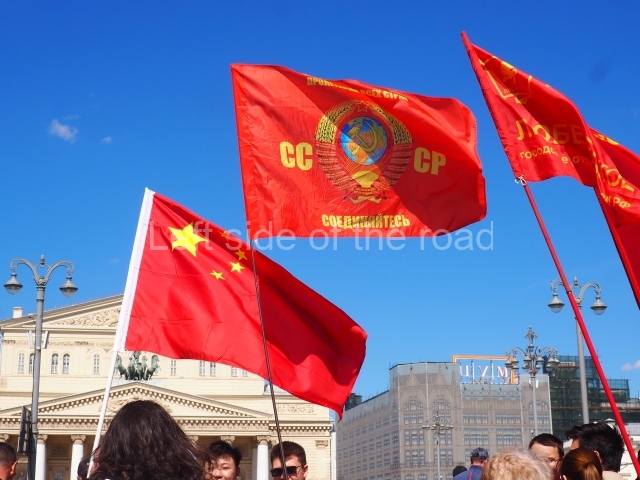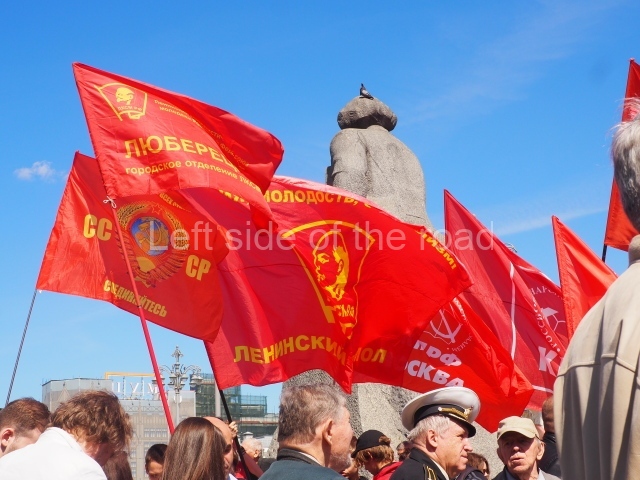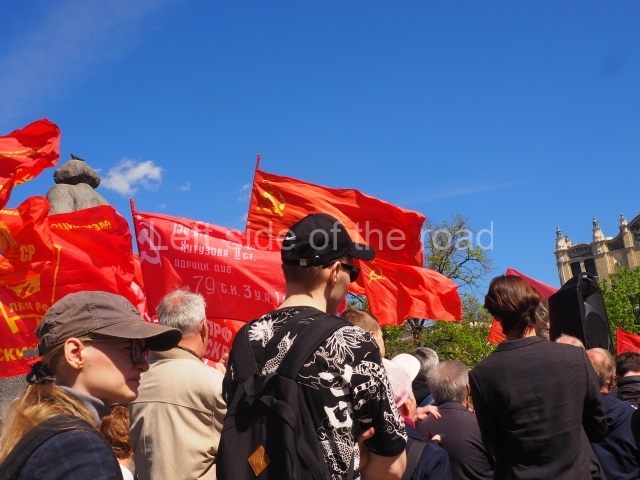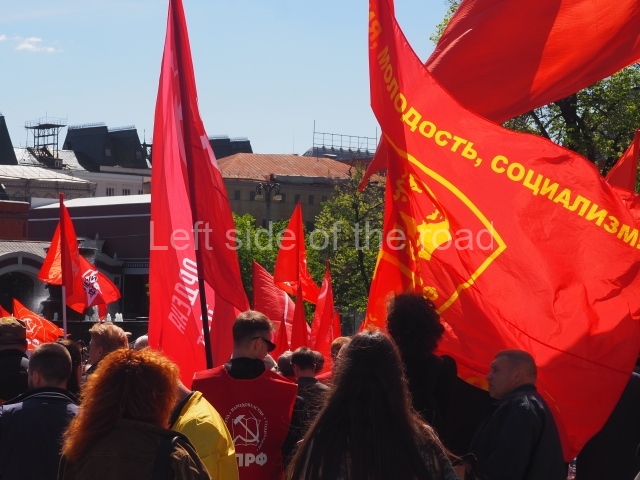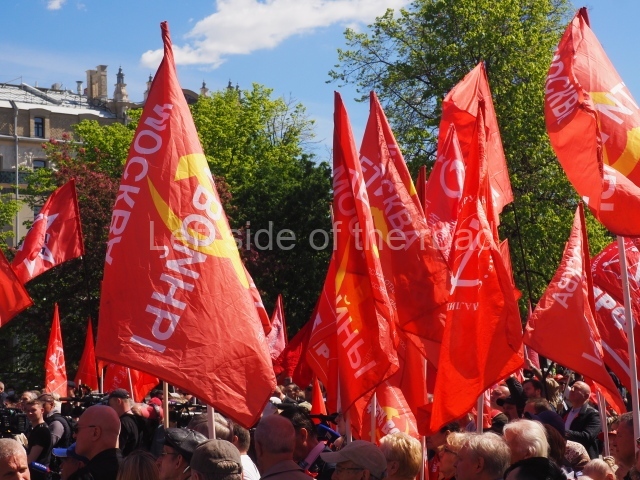Frederick Engels statue – Moscow
The Monument to Friedrich Engels (Russian: Памятник Фридриху Энгельсу) was installed in 1976 in Moscow near the metro station Kropotkinskaya. The authors of the monument are sculptor I. I. Kozlovsky, architects A. A. Zavarzin and A. A. Usachev. The monument has the status of an identified cultural heritage site.
According to the decision of the Central Committee of the CPSU and the Council of Ministers of the USSR, it was decided to erect a monument to Friedrich Engels, the German philosopher and one of the founders of Marxism, in the small square formed where Ostozhenka and Prechistenka streets met.
On November 2, 1976, on the eve of the 59th anniversary of the October Revolution, the monument was opened with a large crowd of people. The first Secretary of the CPSU MGK (Moscow Party Committee) V. V. Grishin, the Secretary of the CPSU Central Committee Mikhail V. Zimyanin, the Chairman of the Moscow City Council V. F. Promyslov, the Deputy Minister of Culture of the USSR V. V. Voronkov, the Ambassador of the German Democratic Republic (East Germany) to the USSR G. Ott and other officials.
VV Grishin cut the scarlet ribbon, after which a coverlet fell from the monument and the hymn of the Soviet Union sounded. At the meeting, the director of the Institute of Marxism-Leninism of the Central Committee of the CPSU, Academician A. G. Egorov, Hero of Socialist Labour P. A. Novozhilov and a student of Moscow State University, T. Yu. Zuikova.
The bronze sculpture of Friedrich Engels is 6m high, installed on a cubic monolith-pedestal made of red granite. The monument stands in the centre of the round in terms of a platform paved with stone slabs and framed by a low granite fence, supplemented by semicircular benches. From the area of Prechistenskie Gates to the monument there is a semicircular set of steps.
Friedrich Engels is shown in full length with his arms crossed on his chest. The sculptor sought to convey the image of Engels in the 1870s, when he, together with Karl Marx, led the international working-class movement.
The monument and the playground around it completely absorbed the park, as a result of which the latter is not marked on the maps of Moscow and does not have its own name.
Text above from Wikipedia.
Related – other statues of revolutionaries in Moscow
Park of the Fallen/Muzeon Art Park
VI Lenin
More references to Frederick Engels;
Karl Marx and Frederick Engels Collected Works
Frederick Engels – pamphlets, books and commentaries
Frederick Engels in Manchester
Sculptor;
I. I. Kozlovsky
Architects;
A. A. Zavarzin and A. A. Usachev
Location;
In a small square where Prechistenka and Ostozhenka Streets meet, just across the road of the entrance to the Kropotkinskaya Metro station.
GPS;
55.74441º N
37.60172º E


